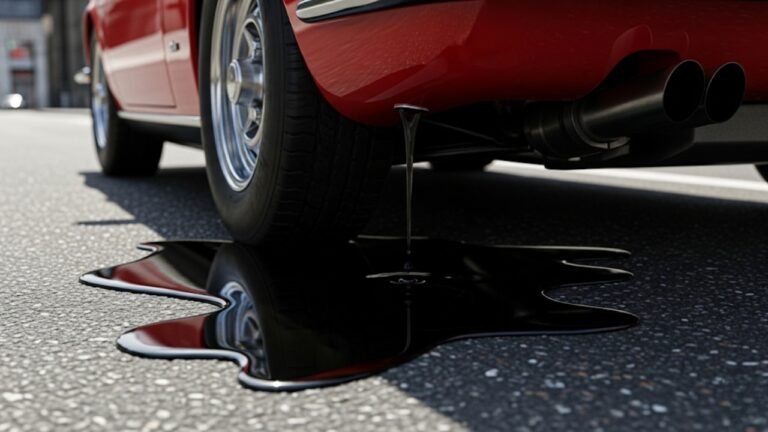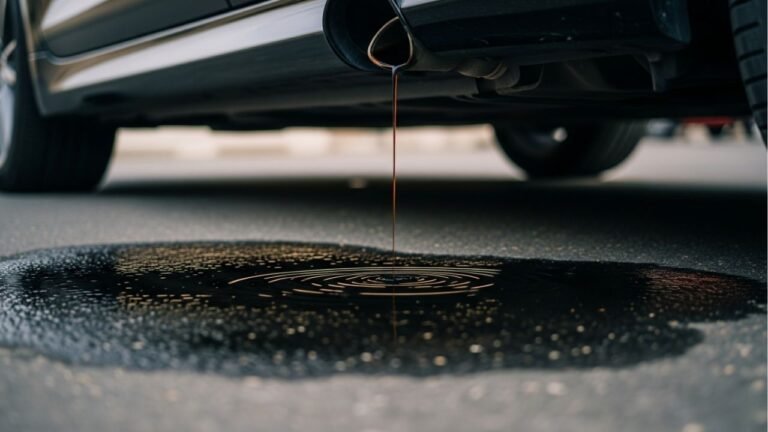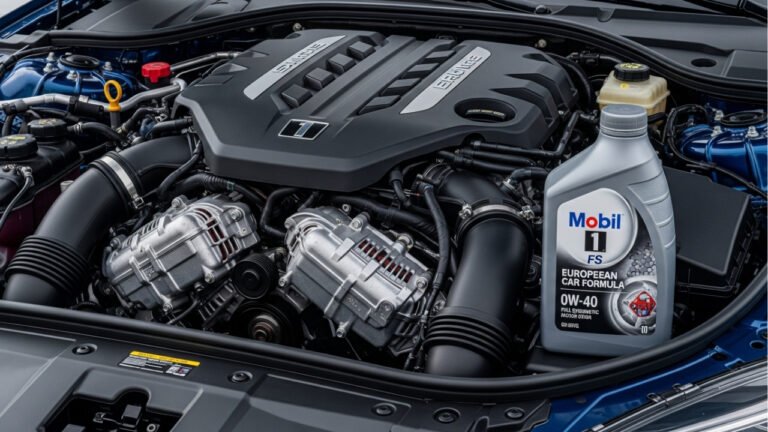When to Get First Oil Change on Brand New Car 2025

You just bought your brand-new 2025 car. The engine hums like a soft melody. The interior smells like promise. You’re feeling that special kind of happiness that only a new car can bring. But then, a small question creeps into your mind: “When should I get the first oil change on my brand new car?”
It seems like a simple question, right? But dig a little deeper, and you’ll realize it’s a lot like asking when a newborn should have their first check-up. Every car is different. Every engine has its own personality. And the answer isn’t always as straightforward as your dealer might make it sound.
In this article, we’ll walk through everything you need to know about when to get first oil change on brand new car 2025—and why it really matters. We’ll talk about real experiences, what manufacturers recommend, and the myths you should absolutely ignore.
Whether you’re a first-time buyer or a seasoned gearhead, this guide will give you a crystal-clear answer with real advice, not fluff. So, buckle up—this is going to be helpful.
In This Article
- 1 Why the First Oil Change Is a Big Deal (Even If It Doesn’t Seem Like It)
- 2 The Magic Mileage Number: What Most Experts Say
- 3 Dealer Advice vs. Real-World Experience
- 4 What Happens If You Skip That First Oil Change?
- 5 What Kind of Oil Does a 2025 Car Use? (And Why It Matters)
- 6 How Do You Actually Know When It’s Time? (Beyond Just Miles)
- 7 Top Myths About the First Oil Change—And Why They’re Dangerous
- 8 Does Driving Style Affect When You Should Change Oil? Absolutely.
- 9 How Much Does the First Oil Change Cost in 2025?
- 10 What Happens During the First Oil Change (Behind the Scenes)
- 11 FAQs: Real Questions About Your First Oil Change
- 12 Final Thoughts: Love Your Car Early, and It’ll Love You Back
Why the First Oil Change Is a Big Deal (Even If It Doesn’t Seem Like It)

Even though your brand-new 2025 car is just off the lot, the engine has already gone through some serious work. It was tested. It was transported. And it might have idled for hours during inspections or deliveries. That means the engine oil is already picking up tiny metal particles—from the engine breaking in. This is totally normal, but it’s also why that first oil change matters so much.
Getting your first oil change early helps flush out all those contaminants before they have a chance to cause wear or clog vital components. Think of it like changing a baby’s diaper. You wouldn’t want to wait too long, right?
The Magic Mileage Number: What Most Experts Say
So here’s the question we’re all asking: When should I get my first oil change on a brand new 2025 car?
Well, it depends. But here’s the general breakdown:
| Mileage | What It Means | Should You Change Oil? |
|---|---|---|
| 500–1,000 miles | Break-in period | Yes, if manufacturer recommends |
| 1,000–3,000 miles | Early precaution | Ideal for engine health |
| 5,000–7,500 miles | Standard for modern engines | Okay, if synthetic oil is used |
| 10,000 miles | Max range (some synthetic oils) | Risky without earlier check |
While some modern cars with synthetic oil can go as far as 10,000 miles, it’s generally smart to do your first oil change between 1,000 and 3,000 miles. That way, you’re not relying on chance—you’re protecting your engine with intention.
Important Note: Always check your owner’s manual first. Every manufacturer sets their own guidelines, and newer models sometimes have specific software that monitors oil life. But trust your gut too—early care goes a long way.
Dealer Advice vs. Real-World Experience
Here’s something you might relate to: when I bought my first new car, the dealership told me, “You’re good for 7,500 miles.” I wanted to believe it. But my mechanic uncle gave me the look. You know the one. And then he said, “If you love your car, change it at 1,000.”
Guess what I did? Changed it at 1,500 miles. And when the old oil came out, it looked way darker than I expected. That’s when I learned—dealers often recommend what’s convenient, not what’s best for your car’s long-term health.
Why? Because skipping that early oil change means fewer warranty claims later on. Harsh, but true. Dealers are in business. And unless your engine has major issues, they’ll rarely tell you to go the extra mile for early oil changes.
So, what should you do? Go with real-world wisdom. Many mechanics and experienced drivers suggest a conservative first change—even if the manual says otherwise. It’s cheap insurance for the future.
What Happens If You Skip That First Oil Change?
Skipping the first oil change is like skipping your kid’s first doctor visit. It might not show problems right away, but the risk builds up quietly. Here’s what you could be dealing with down the road:
-
Premature engine wear
-
Decreased fuel efficiency
-
Sludge buildup
-
Weaker engine performance
-
Potential warranty issues
Think about that: a few hundred miles delay might not feel like much now, but engines are like relationships—neglect them early, and they’ll remember later.
And remember: oil doesn’t just lubricate. It cools, cleans, and protects your engine. Fresh oil at the right time is like giving your car a fresh pair of lungs.
What Kind of Oil Does a 2025 Car Use? (And Why It Matters)
In 2025, most new cars come with fully synthetic oil. That’s great news because synthetic oil lasts longer, performs better in cold and hot temperatures, and protects your engine like a champ. But even the best oil can’t fix contamination from break-in debris.
So while synthetic oil might last up to 10,000 miles, your first oil change is not about oil life. It’s about engine health during the break-in period.
Here’s a quick comparison:
| Oil Type | First Change Recommendation |
|---|---|
| Conventional Oil | 500–1,500 miles |
| Synthetic Blend | 1,000–3,000 miles |
| Full Synthetic | 2,500–5,000 miles (first change) |
So if you’re wondering about your brand new 2025 vehicle, odds are you’re using full synthetic. Still, don’t stretch that first change too far. Treat your engine like it’s new—because it is.
How Do You Actually Know When It’s Time? (Beyond Just Miles)
Not all oil change timing comes down to mileage. Here are some real-world signs your new engine might be ready for that first oil change—no matter what the odometer says:
-
Oil looks darker than expected
-
Slight engine noise or roughness
-
Your car was driven in dusty, hot, or hilly conditions
-
A lot of stop-and-go driving early on
-
Your dashboard oil light flickers (even once)
If you notice any of these, it’s worth popping the hood and checking the oil dipstick. Don’t just go by feel—go by the facts. A simple check can save you thousands later.
Top Myths About the First Oil Change—And Why They’re Dangerous
There’s a lot of advice floating around when it comes to car maintenance. Some of it sounds smart but can lead you down the wrong road—literally. Let’s bust some common myths about the first oil change on a brand new 2025 car.
Myth #1: “Synthetic oil never needs to be changed early.”
Truth: Synthetic oil lasts longer, but it doesn’t mean it’s immune to metal shavings and contaminants from a new engine. Even the best oil needs changing after the break-in period.
Myth #2: “The owner’s manual is always right.”
Truth: Manuals offer general guidance, not personalized advice. They don’t account for how you drive—city traffic, high-speed highways, or dirt roads all make a difference.
Myth #3: “Waiting longer saves money.”
Truth: Skipping the early oil change may save $60 now but could cost you thousands in engine repairs or reduced resale value later. Think long-term.
Myth #4: “The first oil change isn’t necessary—it’s a dealer scam.”
Truth: It’s not a scam. If anything, skipping it benefits the dealer more than you. That early flush helps keep the engine running smoother for longer.
Be careful where you get your advice. TikTok trends won’t protect your engine—but real care will.
Does Driving Style Affect When You Should Change Oil? Absolutely.
Let’s get real for a second. Not everyone drives the same way. Some of us are lead-footed speedsters. Others are smooth cruisers. And that absolutely affects oil life.
If you’re:
-
Frequently stuck in stop-and-go traffic
-
Making short trips under 10 miles
-
Driving in extreme heat or cold
-
Hauling heavy loads or passengers
-
Or living in dusty or high-altitude areas
…then your engine works harder than average. That means your oil gets dirtier, faster. So even if your car has smart oil monitoring, it may not catch how rough you’re treating the engine in the real world.
So here’s the deal: If you drive hard, change your oil early. Simple as that.
How Much Does the First Oil Change Cost in 2025?
You might be wondering if it’s worth doing an early oil change at all. Let’s talk money.
In 2025, the average cost of a synthetic oil change is between $70 and $120, depending on your location and the car make. That includes:
-
High-quality synthetic oil
-
New oil filter
-
Basic inspection
-
Labor costs
Some dealerships offer a free first oil change as part of your purchase deal. If you’re not sure, check your paperwork or ask. Otherwise, investing $100 now can save you $2,000–$4,000 in future repairs. Not even exaggerating.
Also, consider this: a smoother-running engine means better fuel economy, fewer emissions, and a more reliable car. That first oil change? It’s like paying for peace of mind.
What Happens During the First Oil Change (Behind the Scenes)
Let’s say you drive into the shop, hand over your keys, and grab a coffee while you wait. But what’s actually going on with your new car under the hood?
Here’s what a typical first oil change includes:
-
Drain old oil (which may contain metal particles)
-
Replace the oil filter
-
Add fresh synthetic oil at the recommended grade
-
Check fluid levels (brake, coolant, transmission)
-
Inspect belts, hoses, and undercarriage
-
Reset the oil monitoring system on your dash
It’s fast, clean, and effective. Most shops finish it in 30–45 minutes, and you’ll drive away with a smoother, cleaner engine. Plus, some offer a maintenance report, which is handy for your records or resale.
FAQs: Real Questions About Your First Oil Change
1. Do I need to get my oil changed even if I don’t drive much?
Yes. Even if you’re driving less, oil still degrades over time. Change it at least once every 6 months, no matter the mileage.
2. Can I do the first oil change myself?
Technically yes, if you’re comfortable and have the right tools. But for a brand-new 2025 model, it’s safer to go professional and avoid voiding your warranty.
3. What oil should I use for my 2025 car?
Use what your owner’s manual recommends. Most 2025 cars use 0W-20 or 5W-30 full synthetic oil, but it varies by make.
4. Is it okay to go past the first 3,000 miles?
You can, especially with synthetic oil. But why take the risk? Early oil changes are cheap protection for a pricey engine.
5. Will changing oil early void my warranty?
Nope—changing oil early is always safe. Just keep receipts or records in case you need to show proof of maintenance.
Final Thoughts: Love Your Car Early, and It’ll Love You Back
Getting your first oil change on a brand new car in 2025 might not feel urgent. It’s easy to assume your car is fine, especially when it runs perfectly. But under that shiny hood, things are happening. Tiny parts are settling into place. The engine is learning how to breathe.
Your job? Help it out. A simple oil change is one of the most powerful things you can do to protect that investment. It’s like giving your car a head start in life.
So don’t wait too long. Don’t rely only on the manual or the dealer’s advice. Trust your instincts. Respect the engine. And change the oil early.
Because if there’s one thing every great driver knows, it’s this: a well-loved engine lasts forever.






